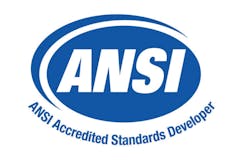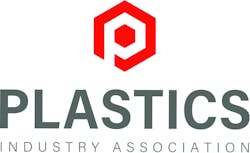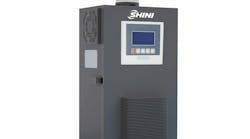The most recent activity within the PLASTICS standards program involves a draft safety standard document for cast film extrusion machines. PLASTICS has made the report available for review and comment by industry professionals with cast film extrusion expertise. Companies that are not members of PLASTICS are able to provide input.
The proposed safety requirements would apply to all machines equipped with one or more metal rolls upon which a plastic melt is cast for the purpose of heat transfer, and can include flat film or embossed film applications.
“We’re asking professionals with an interest in cast film machinery to share their experience and expertise to review this draft document with a particular interest in improving its technical content and clarity of the document,” said Jeffrey Linder, PLASTICS director of industry standards.
Linder went on to state that all feedback will receive careful consideration, given the importance of such input to the development of ANSI resources for the plastics processing industry.
The importance of this standard was emphasized by Keon Wild, cast film extrusion lead for the PLASTICS Machinery Safety Standards Committee. “The need for the standard is to identify known hazards associated with flat and embossed film machines and mitigate those hazards using current safety principles,” he said. “The intent is to provide manufacturers of flat cast and embossed film machines with guidelines for mitigating identified hazards and to provide owners of the equipment information for ensuring their existing equipment meets the current standard to the extent possible.”
Anyone with relevant experience/expertise is invited to contact Linder at [email protected] to receive a copy of the draft standard and the link where comments can be submitted. The deadline for providing comments is July 30.
Linder further explained the significance of the PLASTICS standards program, saying, “The plastics industry manufactures products and materials that make modern living possible. And we do it with sophisticated, high-tech machinery. Whether a piece of equipment fits on an office desk or requires the space of an average-size house, it needs to be built to standards designed, first and foremost, to ensure the safety of the people who operate and maintain it.”
PLASTICS’ ANSI-accredited operating procedures meet the requirements for due process and development of consensus required by ANSI. Through its Machinery Safety Standards Committee, PLASTICS is able to provide professionals throughout the industry a venue to work through ANSI procedures to ensure the standardization of plastics machinery to protect workers and achieve efficiency in productivity. To learn more about PLASTICS, visit www.plasticsindustry.org.








